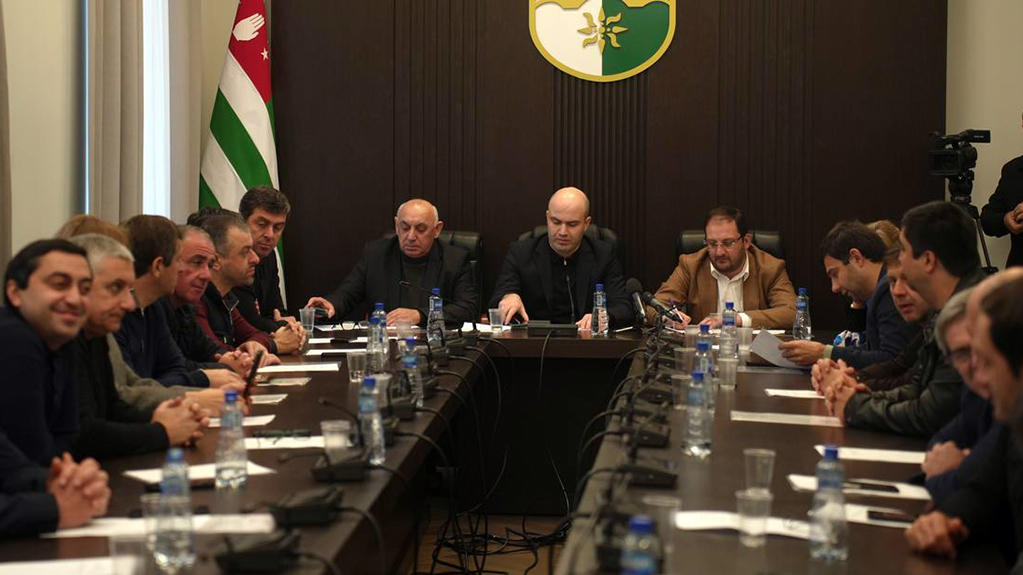The de facto parliament of occupied Abkhazia has supported the resignation of President Aslan Bzhania. The decision was made during today's extraordinary session by secret ballot. A total of 31 so-called deputies participated in the vote, with 28 supporting the resignation, one voting against it, and two ballots being declared invalid.
News
Until the so-called early parliamentary elections, the de facto vice-president, Badra Gunba, will perform the duties of the president.
Aslan Bzhania has denied reports that he left Abkhazia. According to his press service, he is currently in the village of Tamishi in Ochamchire.
In an interview with Sputnik, Bzhania stated that the negotiations between the government and the opposition were held under difficult conditions but were ultimately fruitful.
"This is a kind of compromise, an opportunity to restore constitutional order. However, there will remain some contradictions, both in approaches and in ideology," said Bzhania.
He added that the crisis could have been avoided if society had shown a higher level of political culture, which did not occur, for both objective and subjective reasons.
"I want to rest, analyze what happened in a quiet environment, be alone with my thoughts, and breathe a little fresh air," Bzhania said, reflecting on his future plans.
Adgur Ardzinba, leader of the People's Movement of Abkhazia and the opposition, also issued a statement.
"Today we ended the acute phase of the political crisis, which I call the 'Bzhania crisis,' with his absolutely legal resignation. This was delayed by at least three days and, in fact, by three years," Ardzinba said, thanking the young people who, according to him, "played an unprecedented role."
"This kind of public support and involvement in our common cause has been the most important factor in our success. Everyone contributed, as the number of people and their mood were decisive, even during the negotiations. You can't step into the same river twice. I am sure the Abkhaz people will teach Aslan Bzhania this final lesson in a few months, if the former president doesn't give in to his absurd dreams of returning to the presidency," Ardzinba stated.
Aslan Bzhania explained that the decision to resign from the presidency was made on the fourth day of protests.
Protests in occupied Abkhazia began on November 15, Friday. Opposition representatives and their supporters gathered in Sukhumi, near the so-called parliament, demanding the rejection of the "investment agreement" signed with Russia. They occupied the buildings of the de facto Parliament, the President's Administration, and the Cabinet of Ministers. Against this backdrop, Aslan Bzhania left Sukhumi. On November 16, he made the release of the "government buildings" a condition for his resignation, which the protesters did not accept. Representatives of the de facto government labeled the opposition's actions as a "coup d'état."















